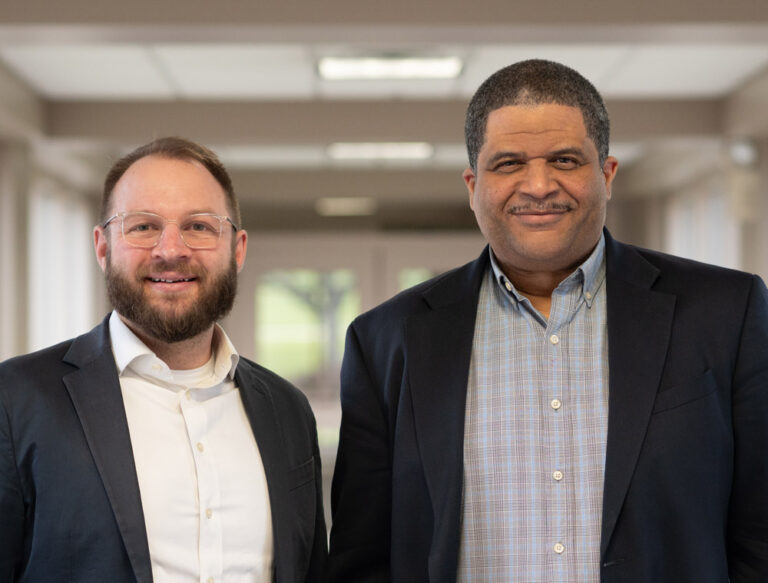To say that we are experiencing cultural divides today is to state the obvious. The number of issues over which Americans disagree is striking, and the veracity and virulence of those disagreements are profound. Years ago, when teaching the concept of culture, I would engage my students in a classroom exercise whereby I asked them to identify the prevailing values of our culture. The students were usually very good at listing many qualities, characteristics, and values broadly shared, even within a pluralistic society. Today, that task is a bit more complicated. It is more difficult not simply because America is more diverse but also more divided. We do not just have differing worldviews; we have competing ones. This not only erodes our ability to understand American culture but also our ability to shape it effectively. Consider the following:
Culture can be defined as “the shared, learned system of a way of life.” It includes our customs and traditions, shared beliefs, values, norms, and mores. It is learned both formally and informally. It is a system where a number of elements work together in both form and function. But most importantly, it is “shared.” It is not culture if every value or belief is individually differentiated. Friend groups, organizations, schools, and churches have cultures. These social systems possess a systemic, learned, and shared way of life. Understanding culture this way helps us understand why cultural divides exist today. We share very little in common as a society on the whole. Or at least, we have difficulty identifying what those things are that we do share in common as a society.
Another point I often make when teaching about culture is how it is shaped and formed and challenged and re-formed. Culture is a dynamic system that defines us, even as we who are a part of it are defining it. It is that simultaneous mutual influence that makes culture so powerful. We can lament the things in our culture that are changing our sensibilities or even our behaviors, but, in fact, those things would not be present or have any influence if they weren’t a reflection of us in some sense. And because culture functions this way, there is often cultural conflict. This conflict is more amorphous when the boundaries of a given social system are larger. For instance, cultural conflict in American society is much more challenging to corral than cultural conflict in a family business. There may still be conflict in a small system, but its intensity is determined solely by the intensity of those challenging one another regarding cultural norms. In a larger system, that intensity, coupled with the sheer volume of diverse perspectives and opinions, creates broader and more far-reaching waves of tension and conflict. And that is where we find ourselves today.
One particular dynamic in contemporary American culture where there is significant tension relates to the role and value of social institutions. Americans are divided in their thinking about family, education, the economy, religion, and the government/politics. Over the past few years, we have seen a rise in expressed sentiments that see these institutions as necessarily corrupt simply because they exist. Therefore, these critics argue, they must be torn down before they do greater damage. Opponents of such a view argue that tearing down our social institutions will undo us and create social and cultural chaos. This social dynamic exemplifies how divided we are regarding marriage and family.
There is doubt and skepticism about the institution of marriage and the role of family that springs from it. In large segments of the American population, individuals wait longer to get married and have fewer children than they did decades ago. In some quarters, explicit attempts are being made to “redefine family and marriage.” For some, family is often seen as simply the next step in life after young adulthood or a nice thing to have because we can enjoy it and it brings us satisfaction. But family is much more than either of those two things. It is the basic building block of society. Even those who would break with a traditional view of marriage and family might concede that the way it is portrayed in dystopian literature and film is eerily dehumanizing. Oppressive authoritarian dictators throughout history have often come to power by overpowering these social institutions and bringing them under control, if not outright destroying them. For example, China’s one-child policy, enforced for decades, gave the state a level of power that could not help but diminish individual freedom.
From a faith perspective, it is important to understand that family is more than a rite of passage or a means to personal fulfillment. For those who follow the teaching of the Bible and have expressed faith in the God of it, marriage and family are instituted at Creation, there at the very beginning. According to the biblical narrative, marriage is designed by God as something that is for our good, for the good of the world, and pleasing to him. Adam and Eve are told to be fruitful and multiply. Their creative inclinations and abilities are sourced in their being formed according to the image and likeness of the creator God, who set them on a course to create culture and social order by building upon family.
When the great cultural and political divides of our day become intensified, when our disagreements become visceral and virulent, and when we find ourselves at odds in society regarding marriage and family, it is important to note that these tensions do not arise from mere political affiliation or ideology in most cases. They arise because we are divided over whether the institutions of marriage and family have intrinsic value, more than an antiquated Western notion to provide social order.
As a Christian, I believe marriage is not only to be enjoyed but defended and held in high esteem, because it is in the very foundation of life in this world, as conceived and designed by Almighty God. From the family should spring forth new generations who have been taught and shown decency, respect, individual responsibility, diligence, initiative, charity, sacrifice, and genuine concern for others. Of course, this is not always so. Of course, there are families where those things are not taught or modeled, and, of course, they are not taught or modeled to perfection in any family. But those failures do not mean that the institution of marriage and family is a failure and is somehow inadequate or should be given up on. If we make a mockery of this most basic building block of society, if we allow cultural values that undermine marriage and family to take root and come to fruition, if we tear it down—hack at it root and branch—with what will we replace it? And although it may be true that there are infinitely more ways to potentially make something worse than to make it better, we do not defend the institution of marriage and family simply because it is our tradition. Neither do we defend it because we are afraid of what might follow. We should embrace it and defend it because it is good, and it is good for the world.
This article first appeared in-print in the Bucks County Courier Times on June 16, 2025.





